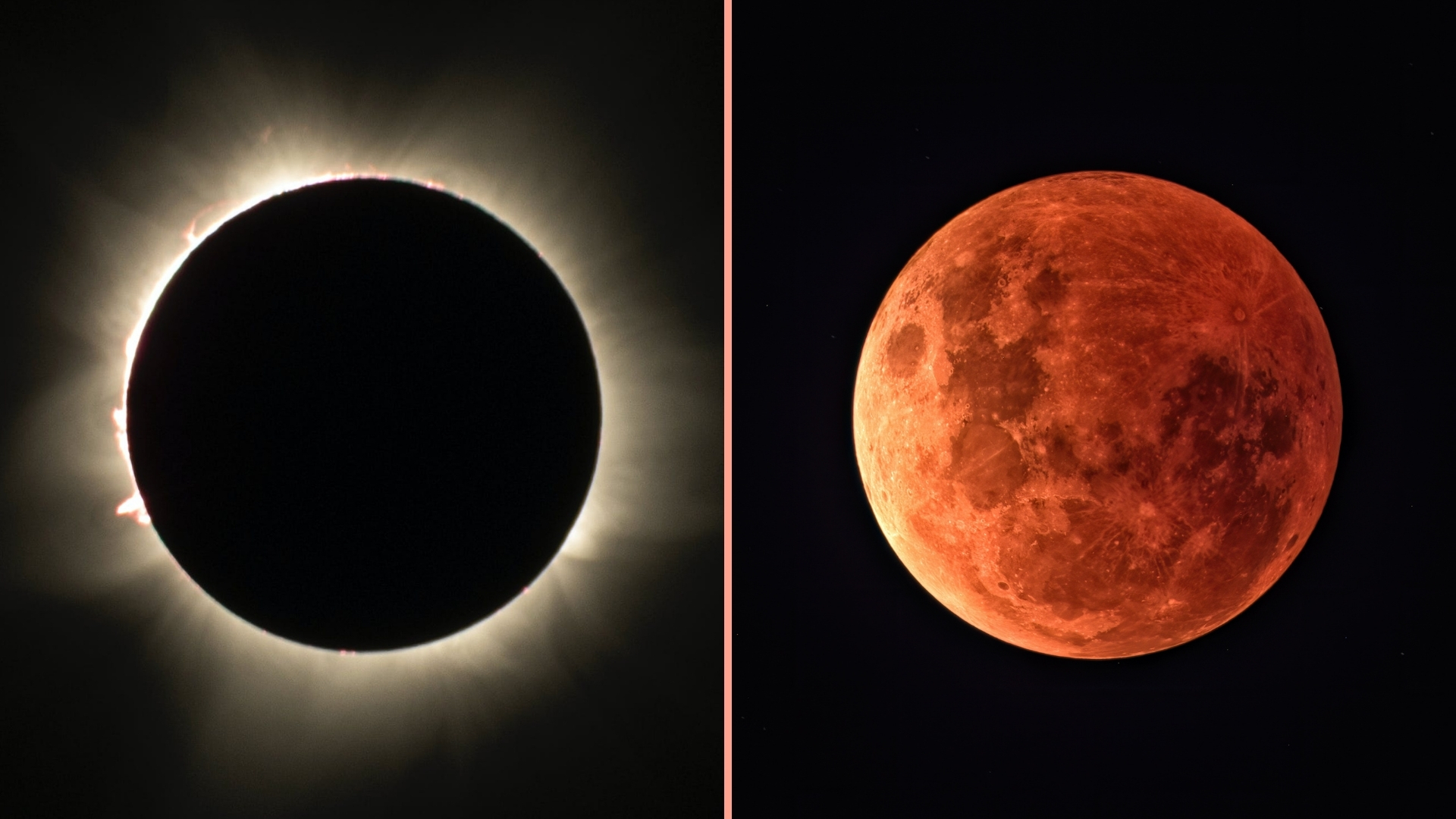Russia's Nauka module briefly tilts space station with unplanned thruster fire
Nauka continues to provide lots of drama in orbit.
Breaking space news, the latest updates on rocket launches, skywatching events and more!
You are now subscribed
Your newsletter sign-up was successful
Want to add more newsletters?

Delivered daily
Daily Newsletter
Breaking space news, the latest updates on rocket launches, skywatching events and more!

Once a month
Watch This Space
Sign up to our monthly entertainment newsletter to keep up with all our coverage of the latest sci-fi and space movies, tv shows, games and books.

Once a week
Night Sky This Week
Discover this week's must-see night sky events, moon phases, and stunning astrophotos. Sign up for our skywatching newsletter and explore the universe with us!

Twice a month
Strange New Words
Space.com's Sci-Fi Reader's Club. Read a sci-fi short story every month and join a virtual community of fellow science fiction fans!
Editor's note: This story was updated July 29 to include details and comments from a news conference held later in the day. Update for Aug. 2: Reports have suggested that the space station tilted much more dramatically than NASA statements suggested; this article has not been changed but you can read full coverage here. Update for Aug. 3: NASA confirmed in a tweet published today that the station's total attitude change before regaining its proper position was about 540 degrees.
Nauka's bumpy ride to the International Space Station didn't get any smoother after the new Russian science module docked on Thursday (July 29).
A little over three hours after docking was complete, cosmonauts Oleg Novitsky and Pyotr Dubrov were in the Zvezda module to which Nauka docked, preparing to open the hatch between the two vehicles. Then, at 12:45 p.m. EDT (1645 GMT), thrusters on Nauka fired "inadvertently and unexpectedly," according to NASA spokesperson Rob Navias. As a result, the space station temporarily lost what engineers call "attitude control," which is quite rare, Navias noted.
"The crew is not in any danger, never was in any danger and attitude control has been regained," Navias said during a live broadcast begun after the station regained its position.
Related: International Space Station at 20: A photo tour
The unplanned thruster firing caused the orbiting laboratory to tilt by about 45 degrees from its proper orientation before the station was able to right itself, Navias said. All told, the station lost attitude control for a total of about 47 minutes, according to NASA officials.
The space station automatically recognized that Nauka's thrusters were sending the orbiting laboratory askew and ordered the Zvezda module to fire its own thrusters to compensate, a process completed by the robotic Russian Progress 78 cargo ship, which is also docked to the space station.
Breaking space news, the latest updates on rocket launches, skywatching events and more!
After the station regained its proper position, Nauka's overseers in Russia began work to ensure the thrusters would not fire mistakenly again, according to NASA. That command was successfully implemented as the space station flew over command stations in Russia.
Nauka is a long-awaited Russian module that will support science activities, host visiting crew and cargo vehicles and serve as a base for cosmonauts conducting spacewalks. The module launched on July 21 and spent eight days trekking to the station. During this time, Nauka's handlers troubleshot several issues with the module, including problems with its propulsion system.
The seven astronauts currently living and working on the orbiting laboratory closed the protective shutters on the station during Nauka's unplanned thruster firings today but were permitted to open them as needed to attempt to observe the situation directly. NASA officials later confirmed that astronauts did see signs that the Nauka module was firing its thrusters.
"The crew did report seeing some debris — some, I think I heard. They mentioned flakes or something; we believe that was from the jet firing," said Joel Montalbano, NASA's program manager for the space station.
According to Montalbano, the crew didn't experience any particular turbulence due to the situation. "We asked the crew, 'Hey, did the space station shake or anything like that?' And the response was negative; we didn't see anything like that."
At the time of the loss of attitude control, the astronauts were most of the way through their workday, but what tasks remained were mostly canceled to allow the crew to support response to the anomaly, according to communications between NASA's mission control center in Houston and the space station.
Email Meghan Bartels at mbartels@space.com or follow her on Twitter @meghanbartels. Follow us on Twitter @Spacedotcom and on Facebook.

Meghan is a senior writer at Space.com and has more than five years' experience as a science journalist based in New York City. She joined Space.com in July 2018, with previous writing published in outlets including Newsweek and Audubon. Meghan earned an MA in science journalism from New York University and a BA in classics from Georgetown University, and in her free time she enjoys reading and visiting museums. Follow her on Twitter at @meghanbartels.

